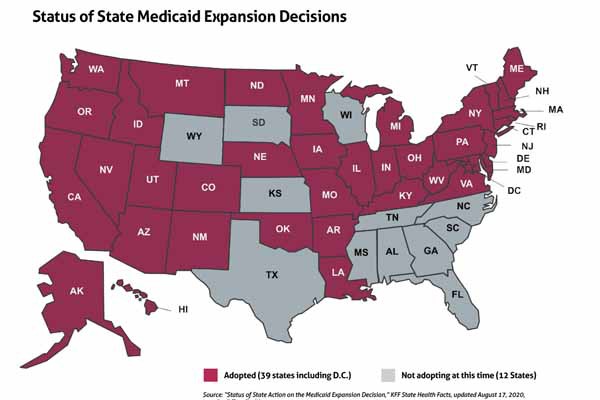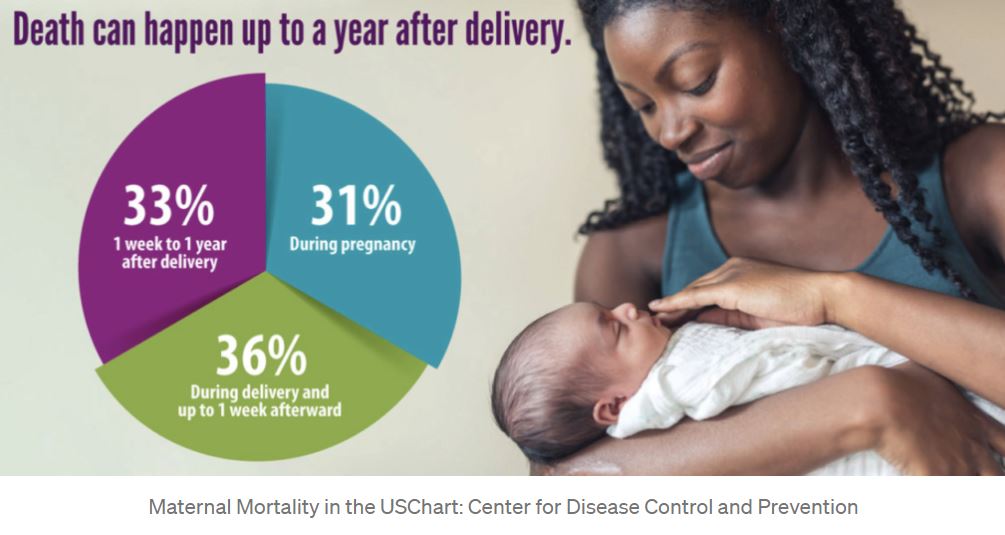Dallas Rep Toni Rose Fights for Medicaid Extension After Having a Baby
Her Texas Bill extends Medicaid coverage for one year postpartum.
Dallas Representative in the Texas House, Toni Rose, is making progress on her bill to expand Medicaid coverage for postpartum people as the 2021 Texas Legislative session comes to a season close.
After Texas passes the heartbeat bill limiting abortion access, Representative Rose hopes to prove Texans care about women and children after pregnancy ends.
Dallas Representative Toni Rose sponsored House Bill 133. She proposed extending Medicaid benefits to low-income women after they have a baby. Rose told The Austin Statesman, “For the past few years, I’ve heard from families across the state who have lost loved ones due to complications of childbirth. Believe me when I say that this issue knows no political or geographical boundaries.”
Under current guidelines, pregnant people qualify for Medicaid for sixty days after delivery. During the Covid-19 pandemic, Texas extended postpartum Medicaid coverage for one year. Some women qualify for a Healthy Texas Women program that provides contraception access and basic primary care coverage.
House Bill 133 is titled “Relating to the provision of certain benefits under Medicaid and the Healthy Texas Women program, including the transition of case management for children and pregnant women program services and Healthy Texas Women program services to a managed care program.”
The bill would allow pregnant people who qualify for Medicaid to continue their health coverage for twelve months after having a baby. The bill passed the Texas House in bipartisan fashion 121–24. The Texas Senate amended the bill reducing the coverage from twelve to six months. The Texas Medical Association is lobbying to extend health coverage back to one year.
Preexisting medical conditions cause many pregnancy complications. To address preexisting conditions, patients need access to medical providers. Primary care, Obgyn, and specialist care before, during, and after pregnancy reduce the risk of maternal deaths.
Many Americans access the US Health system through the Medicaid program. Medicaid covers almost half of the births in our country. In Texas, 54% of pregnant women qualify for Medicaid. But many states, like Texas, chose not to expand Medicaid under the provisions of the Affordable Care Act.

Federal law dictates states must provide prenatal coverage through the Medicaid program. Pregnant women with family incomes up to 138% of the federal poverty level qualify for mandatory prenatal coverage.
Medicaid coverage does not begin until the pregnant woman completes the pregnancy verification process. For many women, this process is slow and arduous. Federally mandated prenatal coverage also ends sixty days postpartum.
In Texas, we provide Medicaid AFTER patients get pregnant and take it away when they deliver. Women gain temporary access to the US health system once they become pregnant and lose access once they deliver their baby. Health providers lose many opportunities to address health needs and prevent complications.
Pregnant people qualify for free health coverage through Medicaid for Pregnant Women, which makes Medicaid available during pregnancy and for two months after birth if they fall under certain monthly income thresholds based on family size ($2,126 or less for a single woman or $3,624 for a family of three).
But to qualify after the two-month postpartum period, the income threshold is significantly lower: $196 a month for a mother with one child or $230 for a mother with two children ($285 a month for a two-parent household with two children).
The maternal mortality rate in Texas is above the national average. According to 2018 data from the U.S. Centers for Disease Control and Prevention, the estimated maternal mortality rate (women who died while pregnant or within 42 days of delivery) was 17.4 deaths per 100,000 live births. In Texas, the maternal mortality rate was 18.5 deaths — that’s nearly 700 deaths nationally and about 70 in Texas each year.
Black and other women of color are two to three times more likely to die from pregnancy-related causes than white women. This risk increases with age. For women over the age of 30, the risk of dying during or after pregnancy is the risk dying before or after pregnancy is four to five times higher than white women.
The 2010 Affordable Care Act (ACA) increased coverage in our country, but millions of Americans are still without health insurance.
The lack of access to high-quality, affordable healthcare increases poor health outcomes and widens the racial disparities.
Why do pregnant women die?
- Cardiomyopathy and another cardiac disease
- Thrombotic pulmonary embolism
- Preeclampsia and hypertensive disorders of pregnancy
- Hemorrhage
- Cerebrovascular accidents (strokes)
- Infections

Representative Toni Rose proposed House Bill 133 to bridge the gap, ensuring Texas provides care for pregnant people after they give birth. This legislation will save lives.
Representative Toni Rose is serving her fourth term in the Texas House of Representatives. District 10 covers the diverse communities of Oak Cliff, Highland Hills, Pleasant Grove, Balch Springs, and Mesquite.

Representative Toni Rose District 10.Photo: CC Toni Rose campaign website
Representative Rose was born and raised in Dallas. Her passions are mental health, social justice, and criminal justice. Her biography states she works on legislation to help “mental health reform, access to affordable healthcare, improving the quality of life for our aging population and underserved communities.”
Mental health access is a key component of her legislation. One in seven women suffers from postpartum depression. Perinatal mood and anxiety disorders can occur anytime from conception to one year after the delivery of a baby.
Perinatal depression is darker and debilitating. A mom feels unable to function for an extended period. Women need access to mental health care to address their needs when certain symptoms are present.
Postpartum depression symptoms include crying spells, feeling sad, feelings of hopelessness, and feeling guilty. Some may express a lack of happiness or feel the absence of bonding with the baby. Some may have feelings of hurt themselves or their baby. All of these symptoms indicate it is time to seek medical attention.

Illustration of the financial impact of untreated postpartum mental health.Image CC Mathematic Study March 2021
A study written by Mathematica in collaboration with St. David’s Foundation and Texans Care for Children examined the economic impact on Texas for failing to provide postpartum mental health care. Texas loses 2.2 billion dollars each year by not providing access to care for people after having a baby.
HB 133 is an opportunity for Texas to show we care about pregnant during and after delivery. A bipartisan group of Dallas leaders in the Texas House of representatives is working together on prison reform. Let’s hope more leaders come together to support Representative Rose’s common-sense legislation to save tax-payer money and save the lives of new Texas mothers.
Originally published on Medika Life and Newsbreak on May 28, 2021.
Blog Author: Dr. Jeff Livingston
Main Blog Photo By: Monkeybusinessimages Istock/Getty Images












